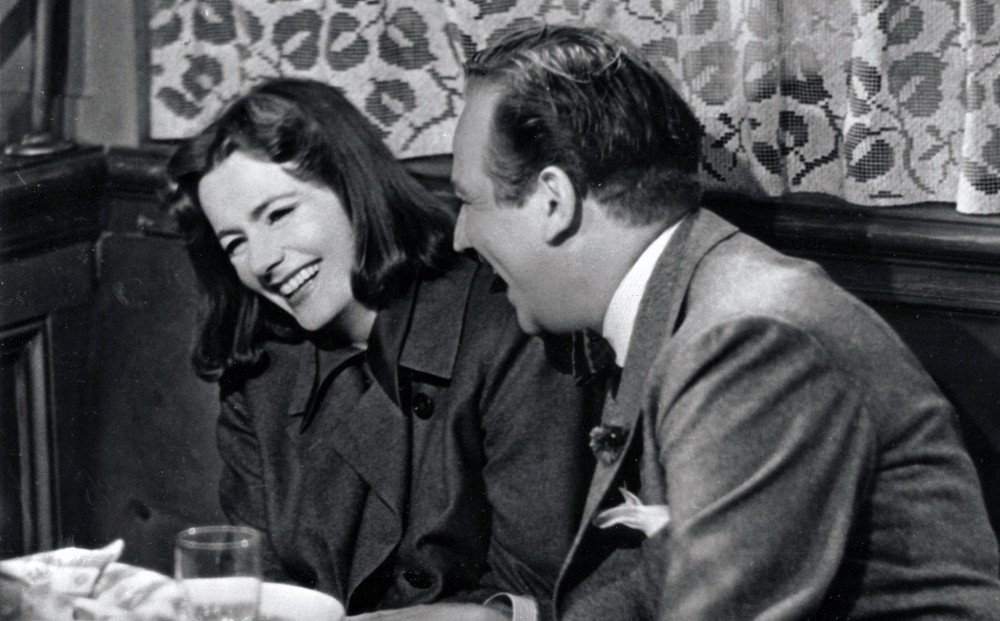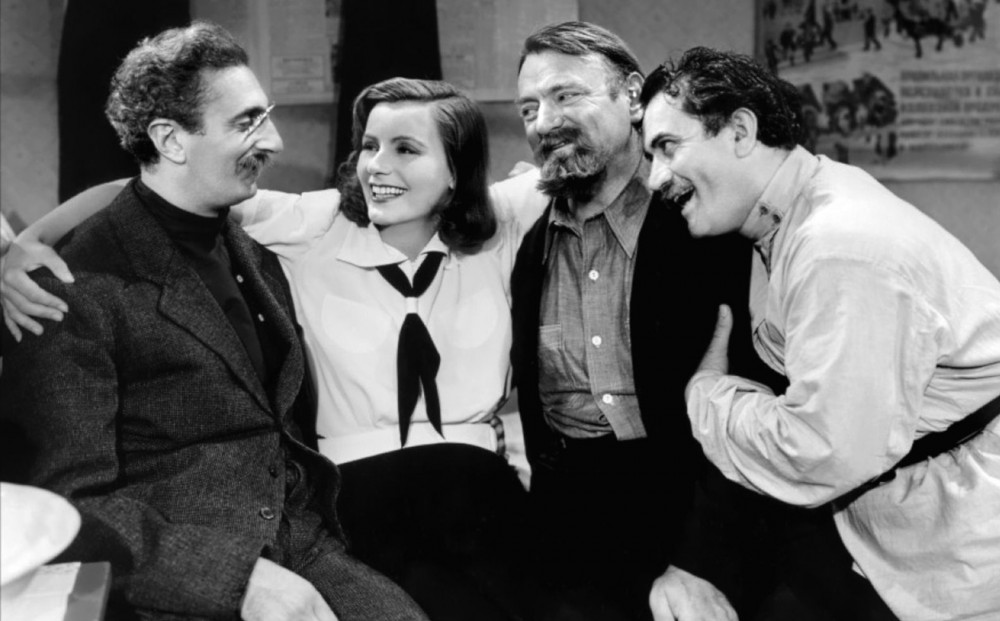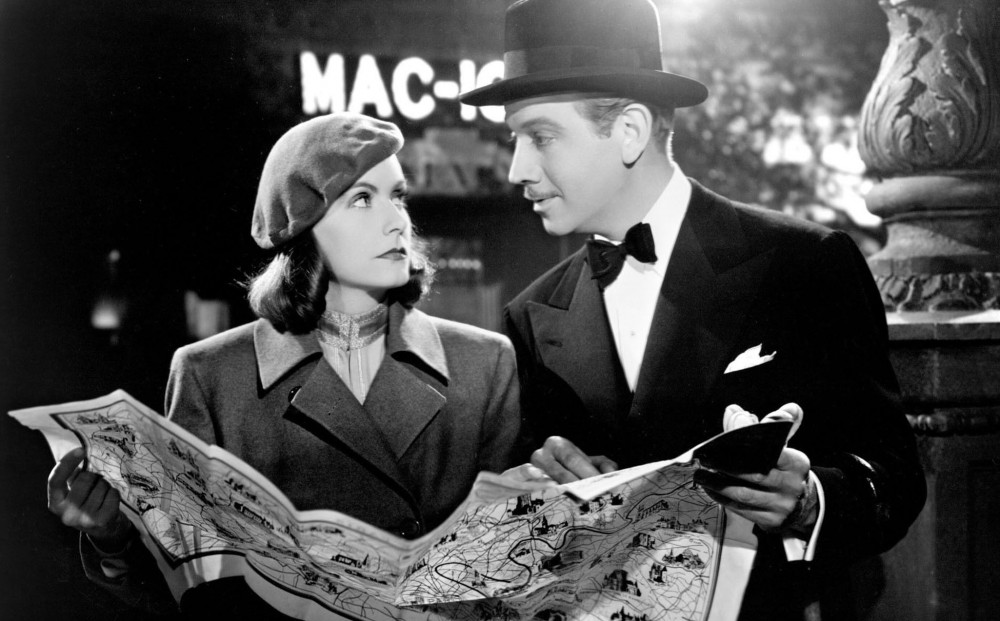NINOTCHKA
Sunday, January 30 at 8:10
Monday, January 31 at 12:30
U.S., 1939
Directed by Ernst Lubitsch
Starring Greta Garbo, Melvyn Douglas, Ina Claire, Bela Lugosi, Sig Ruman, Felix Bressart, Alexander Granach, Richard Carle.
Based on the 1848 novel and 1852 play, La Dame aux Camélias, by Alexandre Dumas.
35mm. Approx. 110 min.
“GARBO LAUGHS!” In Paris to sell off Grand Duchess Ina Claire’s state-confiscated jewels, bumbling Soviet emissaries Iranoff, Buljanoff, and Kopalski (Sig Rumann, Felix Bressart, and Alexander Granach) are just reveling in that room service (“You know what happens when you ring three times? A maid comes in!”) at the über-capitalistic Hotel Clarence, so the Kremlin sends off grim “envoy extraordinary” Greta Garbo (“The last mass trials were a great success. There are going to be fewer but better Russians.”) to get them sweating borscht. But then Count Melvyn Douglas seduces her with champagne, an unintended pratfall, and the joie de chapeau. Garbo’s first comedy proved to be her greatest success, thanks to the fabled “Lubitsch touch” and a cynically satirical script by Billy Wilder, Charles Brackett, and Walter Reisch.
Presented with support from the Robert Jolin Osborne Endowed Fund for American Classic Cinema of the 1930s, '40s, and '50s
Reviews
“Weds the understated virtuosity of Lubitsch’s direction to the unabashed wisecracking script.”
– Michael Sragow
“From the moment she steps off a train in her commissar’s costume, Garbo’s exquisite gravity of expression and metronomic doomsday delivery of her lines are as profoundly hilarious as anything in the history of talking pictures. Reviewers of the time debated solemnly whether the movie was harder on the Communists or the Capitalists, but there was little disagreement on the quicksilver brilliance of Garbo’s portrayal of an icy ideologue melted by bourgeois affability… The instant shift in her great drunk scene from light farce to light pathos without missing a beat of conviction is a moment of rare sublimity.”
– Andrew Sarris



